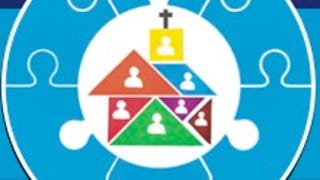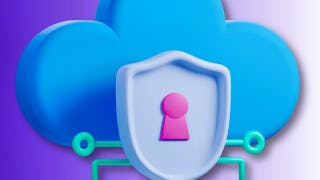- Browse
- Personal Finance
Results for "personal finance"
 Status: Free TrialFree TrialT
Status: Free TrialFree TrialTThe State University of New York
Skills you'll gain: Injury Prevention, Accident Prevention, Emotional Intelligence, Emergency Response, Nutrition and Diet, Safety Training, Personal Development, Working With Children, Child Health, Resilience, Social Skills, Environment Health And Safety, Safety Standards, Health And Safety Standards, Mental Health, Meal Planning And Preparation, First Aid, Record Keeping
4.6·Rating, 4.6 out of 5 stars30 reviewsBeginner · Course · 1 - 3 Months
 Status: PreviewPreviewU
Status: PreviewPreviewUUniversity of Virginia
Skills you'll gain: Business Strategy, Competitive Analysis, Strategic Thinking, Stakeholder Analysis, Corporate Strategy, Strategic Decision-Making, Business Analysis, Organizational Strategy, Market Analysis, Case Studies, Product Lifecycle Management, International Finance, Risk Analysis, Global Marketing, Innovation, Diversity and Inclusion
4.9·Rating, 4.9 out of 5 stars42 reviewsBeginner · Course · 1 - 4 Weeks
 Status: Free TrialFree TrialD
Status: Free TrialFree TrialDDuke University
Skills you'll gain: Compensation Analysis, Performance Review, Staff Management, Safety Training, Human Resources, Human Resource Management, Diversity and Inclusion, Performance Management, Human Resources Management and Planning, Recruitment, Human Resource Policies, Compensation and Benefits, Supervision, Job Analysis, New Hire Orientations
Beginner · Course · 1 - 4 Weeks
 Status: PreviewPreviewK
Status: PreviewPreviewKKnowledge Accelerators
Skills you'll gain: Cyber Security Policies, Mobile Security, Identity and Access Management, Remote Access Systems, Data Security, Multi-Factor Authentication, Artificial Intelligence
4.9·Rating, 4.9 out of 5 stars38 reviewsBeginner · Course · 1 - 3 Months
 Status: Free TrialFree TrialU
Status: Free TrialFree TrialUUniversity of Illinois Urbana-Champaign
Skills you'll gain: Nutrition and Diet, Clinical Nutrition, Precision Medicine, Personal Care, Microbiology, Molecular Biology, Public Health
4.6·Rating, 4.6 out of 5 stars22 reviewsIntermediate · Course · 1 - 4 Weeks
 Status: PreviewPreviewU
Status: PreviewPreviewUUniversiteit Leiden
Skills you'll gain: Corporate Tax, Tax Planning, Tax Laws, Tax, Income Tax, Tax Compliance, International Finance
5·Rating, 5 out of 5 stars17 reviewsBeginner · Course · 1 - 3 Months
 Status: Free TrialFree Trial
Status: Free TrialFree TrialSkills you'll gain: Program Management, Project Management Life Cycle, Stakeholder Management, Communication Planning, Project Management, Project Management Institute (PMI) Methodology, Milestones (Project Management), Project Closure, Resource Management, Scope Management, Risk Management, Budget Management, Portfolio Management, Performance Reporting, Organizational Strategy, Benefits Administration, Professional Networking
4.8·Rating, 4.8 out of 5 stars19 reviewsAdvanced · Course · 1 - 3 Months
 Status: PreviewPreviewB
Status: PreviewPreviewBBanco Interamericano de Desarrollo
Skills you'll gain: Climate Change Adaptation, Climate Change Mitigation, Water Resource Management, Energy and Utilities, Environmental Policy, Sustainable Business, Risk Management, Environmental Monitoring, Finance, Innovation
4.9·Rating, 4.9 out of 5 stars56 reviewsBeginner · Course · 1 - 4 Weeks
 Status: PreviewPreviewU
Status: PreviewPreviewUUniversidad Austral
Skills you'll gain: Financial Analysis, Financial Acumen, Financial Statements, Entrepreneurial Finance, Balance Sheet, Financial Accounting, Income Statement, Business Metrics, Business Valuation, Corporate Finance, Working Capital
4.7·Rating, 4.7 out of 5 stars22 reviewsBeginner · Course · 1 - 4 Weeks
 Status: Free TrialFree TrialU
Status: Free TrialFree TrialUUniversity of Maryland, College Park
Skills you'll gain: Marketing Planning, Interviewing Skills, Strategic Marketing, Recruitment, Marketing, Target Market, Presentations, Personal Attributes, Professional Development, Business Writing, Communication, Smart Goals, Storytelling, Writing
4.8·Rating, 4.8 out of 5 stars6 reviewsMixed · Course · 1 - 3 Months

Skills you'll gain: Plotly, Plot (Graphics), Data Visualization, Statistical Visualization, Box Plots, Scatter Plots, Interactive Data Visualization, Data Visualization Software, Histogram, Statistical Analysis, Data Analysis, Probability
4.9·Rating, 4.9 out of 5 stars10 reviewsBeginner · Guided Project · Less Than 2 Hours
 Status: Free TrialFree Trial
Status: Free TrialFree TrialSkills you'll gain: Intellectual Property, Music, Revenue Management, Musical Composition, Revenue Recognition, Music Performance, Performance Reporting, Regulation and Legal Compliance, Payment Processing and Collection, Compensation Strategy, Registration, Digital Content
4.9·Rating, 4.9 out of 5 stars35 reviewsIntermediate · Course · 1 - 3 Months
Searches related to personal finance
In summary, here are 10 of our most popular personal finance courses
- Health and Safety of a Home-Based Childcare Center: The State University of New York
- إستراتيجية الأعمال المتقدمة: University of Virginia
- Human Resource Stewardship for Churches: Duke University
- Cybersecurity Awareness Essentials for Employees: Knowledge Accelerators
- Putting the Personal in Personalized Nutrition: University of Illinois Urbana-Champaign
- Taxation of Multinationals for Everyone: Universiteit Leiden
- Program Manager Capstone: IBM
- Climate Change in Water and Sanitation Utilities: Banco Interamericano de Desarrollo
- Finanzas para emprendedores: Universidad Austral
- How To Land the Job You Want (Capstone Project): University of Maryland, College Park










